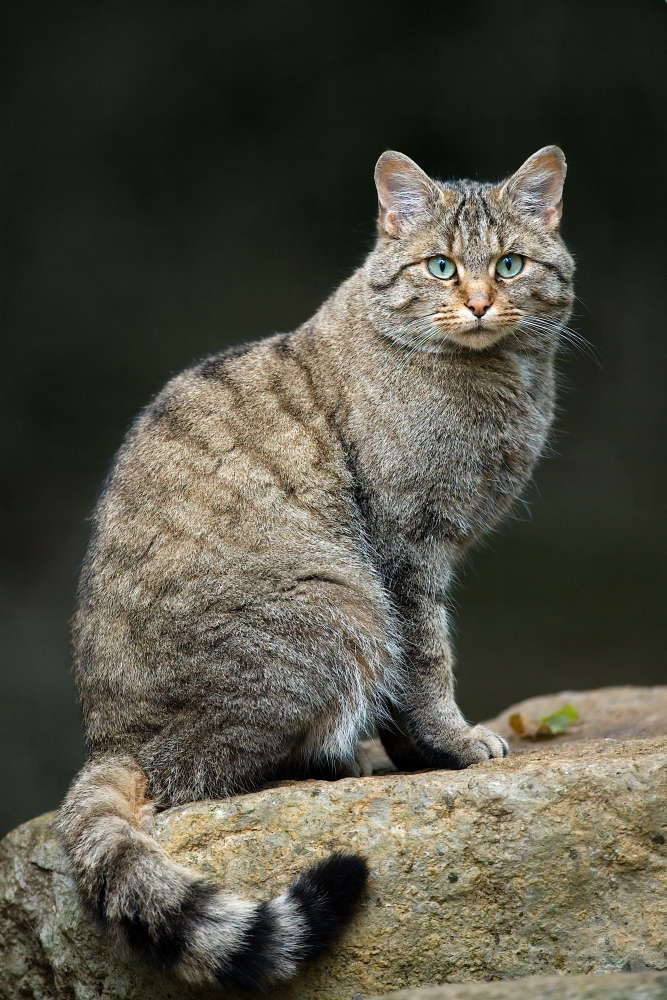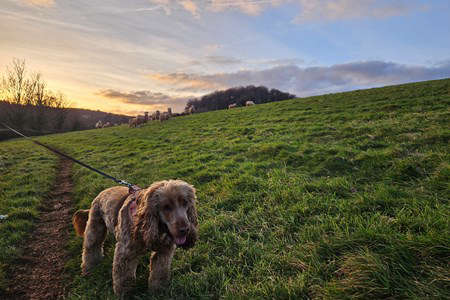
A new report reveals that the South West of England could support a reintroduction of European wildcats after more than a 100-year absence from the area, marking a vital next step in helping to secure the future of the UK’s most critically endangered mamma
The study finds that a sustainable population of wildcats could flourish in the South West and that 80% of people surveyed in the region were positive about their reintroduction.
The comprehensive two-year investigation, undertaken by the South West Wildcat Project – a partnership of organisations led by Devon Wildlife Trust which includes Forestry England and the Derek Gow Consultancy – concentrated its analysis on four main aspects of wildcat reintroduction: 1) impacts on people and communities; 2) impacts on other wildlife; 3) impacts on farming livestock and pets; and 4) the long-term sustainability of a wildcat population after reintroduction. Find the full report here.
European wildcats – historically also known as ‘woodcats’ – were once widespread in the South West, along with many other parts of England, Scotland and Wales. However, centuries of persecution, plus the loss and fragmentation of their favoured woodland and rough grassland habitats saw them disappear across much of their range. The South West’s last wildcats are thought to have survived until the mid-nineteenth century.
Today the UK’s only remaining wildcats live in the Highlands of Scotland. Despite being given protected status in 1988 wildcats are now classed as ‘critically endangered’ and at risk of extinction with as few as 115 individuals remaining in the wild. The Saving Wildcats project was established in 2020 to reinforce the animal’s numbers in Scotland.
In response to the animal’s precarious situation, previous preliminary research into restoring wildcats beyond their Scottish base by the Vincent Wildlife Trust (VWT) concluded that the South West may provide the best combination of conditions needed to re-establish the native animal in England.
The South West Wildcat Project was therefore established in 2023 to investigate the feasibility of a reintroduction to the region. Its report, published today, concludes:
- The South West contains enough woodland cover connected by other suitable habitat to support a sustainable wildcat population. It highlights a well-connected landscape of habitat across mid Devon as potentially the most suitable for reintroductions to take place.
- A significant majority of people in the South West expressed positive views towards wildcat reintroduction to their region. Two separate surveys were conducted by independent researchers at the University of Exeter. In one, 71% of 1,000 people (representative of the age and gender of the region’s population) liked the idea of wildcat return. In the other, 83% of 1,425 who responded to an online questionnaire expressed positivity towards wildcat reintroduction. The University of Exeter’s report can be viewed here.
- Wildcats pose no significant risk to existing endangered wildlife populations such as bats and dormice. Wildcat diets concentrate on widespread commonly found species, with 75% of their prey consisting of small mammals including voles, rats, wood mice and rabbits. Their presence would help ‘balance’ existing ecosystems by returning a missing predator which co-evolved alongside native wildlife.
- Wildcats pose no threat to people, domestic pets or farming livestock such as lambs. Commercial and domestic poultry can be protected from wildcats with the same precautions deployed for existing predators such as foxes.
The report also identifies two areas which a future reintroduction project should address to ensure success:
- Hybridisation (interbreeding) between wildcats and feral/domestic cats has become a recent issue for the existing wildcat populations in Scotland, threatening the genetic security of the species. The report concludes that, to succeed, a reintroduction project in the South West must address this by working with local communities and cat welfare organisations to support a neutering programme for feral/domestic cats in areas where wildcats will be present.
- A future reintroduction project must also prioritise engagement with local communities and stakeholders. It should establish open and ongoing communication with those who have concerns about wildcats. It proposes a monitoring and management programme which will operate after reintroduction, addressing issues if and where they arise.
While there are no immediate plans to release wildcats, Devon Wildlife Trust and its partners are committed to developing plans for reintroduction. This includes securing funding to ensure the best chance of success.

 Rural Affairs officers welcome new law to crack down on livestock attacks
Rural Affairs officers welcome new law to crack down on livestock attacks
 Hospiscare needs your help with a unique ‘double your money’ fundraising challenge
Hospiscare needs your help with a unique ‘double your money’ fundraising challenge
 County Council invites residents to help shape 2026/27 budget
County Council invites residents to help shape 2026/27 budget
 ‘Pop-up’ vaccination clinics being held in several communities this week
‘Pop-up’ vaccination clinics being held in several communities this week











